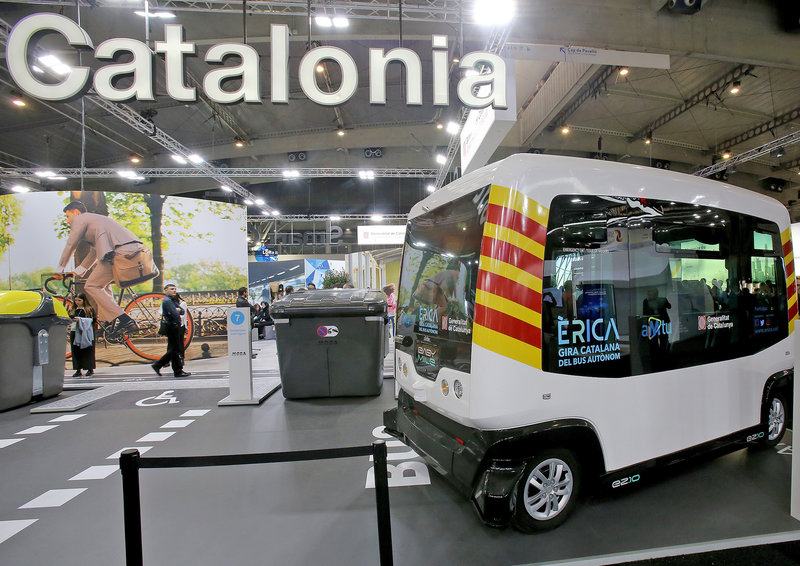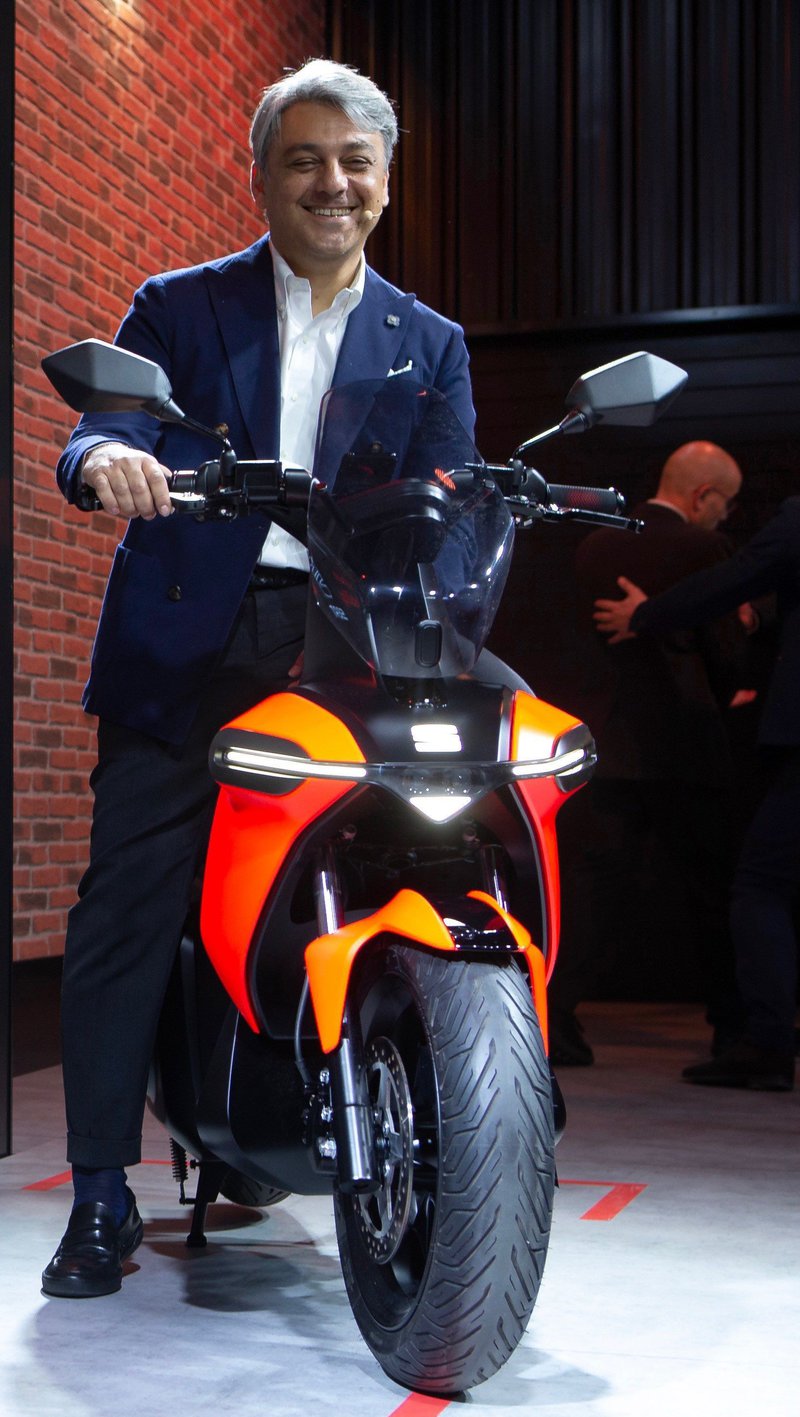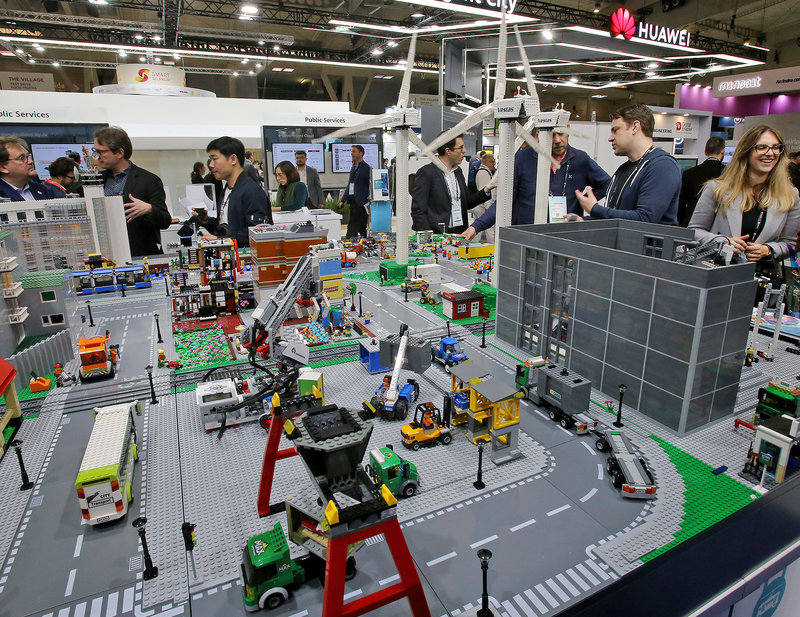Micromobility on the RISE
The recent Smart City Expo World Congress in Barcelona saw 700 cities looking for solutions to future challenges like mobility. Automaker Seat was there with new electric vehicles designed for individuals and urban sharing
Mobility has to change in a way that is radical, global and rapid. It’s a health issue, because pollution causes deaths and slows the cognitive development of our children.” That was how Barcelona mayor, Ada Colau, described one of the biggest challenges facing today’s society at the Smart City Expo World Congress held recently in the Catalan capital. In fact, it was a subject that took up much of the international congress, where a number of firms in the mobility sector presented innovative solutions.
A new player on the micromobility scene is Seat, with the automaker setting up a new unit in Barcelona devoted to urban mobility, which will be put at the service of the entire Volkswagen group. In fact, at the congress the company unveiled a new product in this area, its first ever motorbike, which is electric and targeted at both individual customers and motosharing companies.
The new electric motorbike will not go on sale until next spring, but Seat announced that it will be powered by an 11-kilowatt motor, and will be equivalent in power to a 125cc petrol motorbike, with a maximum speed of 100 km/h and a range of 125 kilometres. According to Seat, even using the motorbike as the main way for getting around the city will mean it should only have to be recharged once a week, which can be done at a charging point or garage, while the battery can also be removed to be recharged in the home.
“Barcelona residents spend an average of six days a year in traffic jams and we believe that the solution is micromobility,” said Seat president, Luca de Meo, whose company also presented a prototype of its small electric car, the Minimó, at the Mobile World Congress earlier in the year.
Seat also has an electric scooter on the market, the latest model of which has a range of 65 kilometres, which was developed in conjunction with Segway. The electric motorbike is also the fruit of collaboration, with the Barcelona firm Silence, and will come with an app that informs the user of its exact location and the charge level of the battery.
The automaker is also making strides in the area of shared micromobility. A while ago it bought the car-sharing platform, Respiro, which began in Madrid and recently arrived in Hospitalet de Llobregat. Seat is now looking into using its showrooms as collection points for the shared vehicles, as well as taking advantage of Barcelona’s many underground car parks.
A lucrative business
De Meo insists that this new area of urban mobility “will be a fundamental element in Seat’s strategy,” adding that the firm wants “cities to be more sustainable and to improve quality of life.” Yet, it is also a new source of revenue for companies, with some consultants estimating that it could be worth up to 140 billion euros a year in Europe, if the price is based on 19 or 20 cents a kilometre, and to satisfy that demand will require some nine million vehicles.
As the European city with the most motorbikes per capita, Barcelona will be a key site for trying out these micromobility solutions, whether it be electric scooters, motorbikes or cars. However, smart solutions for the cities of the future go further. In fact, Colau and De Meo came together during the fair to present, EIT Urban Mobility. This initiative from the European Institute of Innovation and Technology, which involves 48 partners from 15 states, aims to fund projects that provide mobility solutions to make European cities more habitable.
Colau insisted that the measures to improve mobility and reduce pollution in the city are “not against anyone” nor a form of “political or ideological imposition”. What’s more, the mayor claimed that the changes cities are undergoing can be “great opportunities” for the economy. As for De Meo, he joined with Colao in the need to reduce the number of private vehicles in circulation in the city and pointed to digital vehicle sharing platforms as a solution, adding that auto companies would have to change their business models and reduce their volume of production. EIT Urban Mobility, which is headquartered in Barcelona, will last for between 7 and 15 years, with 400 million euros of funding from the European Commission.
A sector on the rise
In all, the fair brought together around a thousand exhibitors with all types of solutions for smart cities, many of which were to do with controlling traffic, from those that centralise large amounts of information to small-scale solutions, such as a smart pedestrian crossing that uses cameras to detect when people are crossing the road. In this case, it detects when vehicles are approaching and calculates their speed, and if it foresees the chance of an accident it emits a special signal to warn pedestrians and, in the future, will also alert the driver if the car is equipped with compatible technology. This solution was developed in Estonia, but it is the type of measure that is currently being developed everywhere in Europe, where businesses related to smart city technology continue to grow. At the moment there are 438 companies in the sector, employing 45,046 people and with a turnover of 9.7 billion euros, which represents 4% of GDP. According to the government’s business promotion agency, ACCIÓ, the sector is growing in Catalonia too: the number of companies in the sector has grown by 62% and turnover has gone up 39% compared to 2016, the first year that data was collected.
feature
’Cities Made of Dreams’
Barcelona’s Smart City Expo World Congress in November brought together entrepreneurs, policy-makers, academics, representatives of civil society and global companies, journalists, and students, among the 25,000 people who attended the event.
The congress went under the slogan ’Cities Made of Dreams’ and featured over a thousand exhibitors and 400 speakers focusing on five main concepts related to helping provide the world’s cities with a sustainable future: Digital Transformation, Urban Environment, Mobility, Governance & Finance, and Inclusive & Sharing Cities.






